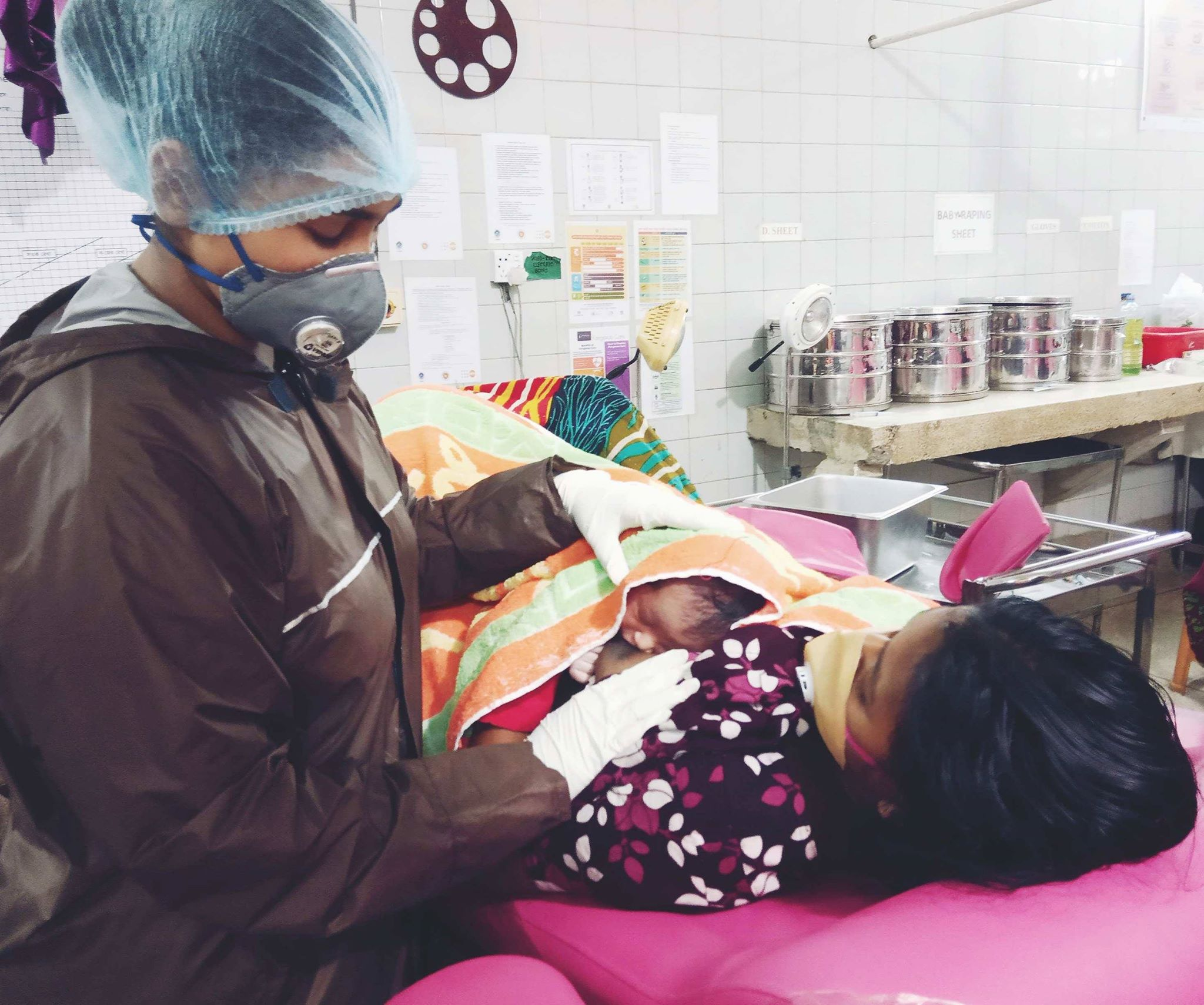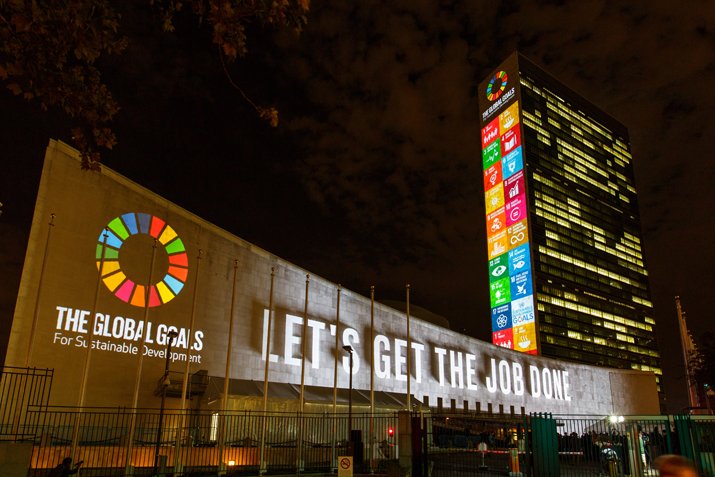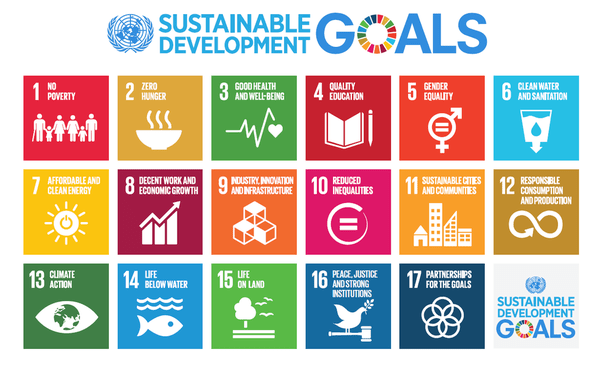20 May 2020
Mr. Bjorn Andersson, Regional Director for Asia-Pacific, UNFPA
After five years of implementing the 2030 Agenda for Sustainable Development and 25 years of implementing the Programme of Action of the 1994 International Conference on Population and Development, it is clear the Asia-Pacific region needs to accelerate its efforts to achieve sustainable development.
The health, social, micro- and macro-economic impacts of the ongoing COVID-19 pandemic further demonstrate that business as usual is not good enough. What we need, more than ever, is to work together to address our common challenges.
The COVID-19 pandemic has exacerbated the multitude of challenges that the region faces, including the region's ability to achieve Human Well-Being and Capacities. In this regard, I would like to highlight some key challenges COVID-19 poses in the areas of poverty eradication, health, gender equality and education, and how we should move forward, as a region, in the spirit of solidarity and cooperation.
First, COVID-19 has forced us all to reexamine the resilience of the progress made in reducing poverty. While in many countries, economic growth has led to job creation, the majority of the region’s workforce lacks income security and social protection. In Asia-Pacific, the informal sector accounts for 60 per cent of the workforce. In many countries women are often concentrated in the informal sector, and on average 64 per cent of women workers in the region are employed in the informal sector. Due to COVID-19, many of these informal sector workers are now unemployed, and generally without access to social protection. This has resulted in millions of people in the region on the brink of poverty.
In the area of health, prior to COVID-19, there were already significant disparities in access to health services. Developing countries in the region on average spend about 2 per cent of GDP on health, compared to the global average of 4.7 per cent. This underinvestment in health systems has had significant impacts on countries' ability to address the health related crisis of COVID-19 and to respond to the needs of vulnerable groups in particular. One such vulnerable group that has been especially impacted by COVID-19 and limited capacities of health systems, is older persons. We have seen that older persons are more susceptible to COVID-19 yet many are at increased risk of exclusion of medical treatment if they are less prioritized than persons with a higher likelihood of survival.
Image: UNFPA Iran
In the area of sexual and reproductive health, COVID-19 is risking the decades of progress the region has made in expanding quality sexual and reproductive health services, including family planning and access to modern contraception, as well as reducing maternal and newborn mortality rates. While the region already had a relatively high rate of unmet need for family planning, the impact of COVID-19, and in particular the disruption of supply chains and the limited mobility of individuals, will likely result in increased unintended pregnancies. An increase in unintended pregnancies may also result in more women seeking unsafe abortions.

Image: Selima Akter/UNFPA Bangladesh
In the area of maternal mortality, prior to COVID-19, on average 10 women died every hour in childbirth, typically due to preventable causes. During the COVID-19 epidemic women appear to be less inclined to attend antenatal and postnatal clinics, and give birth in facilities with midwives and skilled birth attendants, thereby increasing their chances of not receiving appropriate management in the event of complications leading to maternal mortality and morbidity. Through modeling of the indirect effects of COVID-19 on maternal and child mortality, UNFPA has estimated that over the next several years, developing countries in the Asia-Pacific region will experience a significant increase in maternal and newborn deaths. Similar patterns were observed in countries during other health crises, including Ebola, SARS and MERS.
While there are significant and potentially long-term impacts on the sexual and reproductive health and rights of women, COVID-19 will likely also have long-term impacts on gender equality and the empowerment of women and girls in the region more broadly. COVID-19 will likely magnify deep-rooted forms of discrimination and inequalities, exacerbate vulnerabilities and increase gender inequalities. In particular, we are observing that COVID-19 is exacerbating the existing high prevalence of gender-based violence against women and girls in Asia-Pacific.
Illustration: Sr. Venus Marie Pegar/Philippines
Restricted movement, the reduction in community interaction and closure of services increases the risk of exposure to gender-based violence and limits the ability of survivors’ to distance themselves from their abusers, and reduce their ability to access services and support. Beyond the immediate devastating impacts, gender-based violence against women and girls, in the context of COVID-19, will likely have longer term negative consequences on women’s health and well-being, safety and security, and economic participation and empowerment.
Lastly, in the area of education, prior to COVID-19, there were significant gaps in educational attainment in the region. Education remains one the most underfunded sectors in most countries of the region. Over 300 million children and adolescents in the region are not achieving the minimum proficiency levels in reading and mathematics and significant disparities exist in the rates of secondary education enrollment and completion, which are most pronounced among poor and rural populations.
Due to COVID-19, hundreds of millions of students are unable to physically attend school, many of which do not have access to the internet at home, which undermines their ability to take part in distance learning. Students without the necessary ICT equipment to engage in distance learning will undoubtedly have their learning continuity compromised. Not only will this have direct implications to individual student’s educational outcomes, this disruption in education can also enhance existing inequalities within countries and limit the ability of countries, at least in the short term, to reap their demographic dividend.
These are just a few of the ways in which the COVID-19 pandemic will have long term and damaging impacts on countries, communities and individuals.
Going forward, it will be crucial that the Asia-Pacific region uses this experience to build back better through increased investments in social protection, universal health coverage, including sexual and reproductive health services, gender equality and education.
As we begin the implementation of the next five years of the 2030 Agenda, let us work together to forge a more resilient future, with individuals – their rights and their choices - at the center.
Only through our collective efforts, underpinned by universal norms of standards of human rights and gender equality, can we reach those persons most vulnerable – and build societies that are more resilient to shocks and crises.
UNFPA in Asia and the Pacific remains committed to supporting countries to achieve this vision. We will work actively within the United Nations system, both at regional and country levels, to promote transformative change, in line with the WHO Strategic Preparedness and Response Plan, the Global Humanitarian Response Plan and the UN Framework for the immediate socio-economic response to COVID-19. In so doing, we will contribute to the achievement of the 2030 Agenda and its Sustainable Development Goals with their pledge of truly leaving no one behind.



